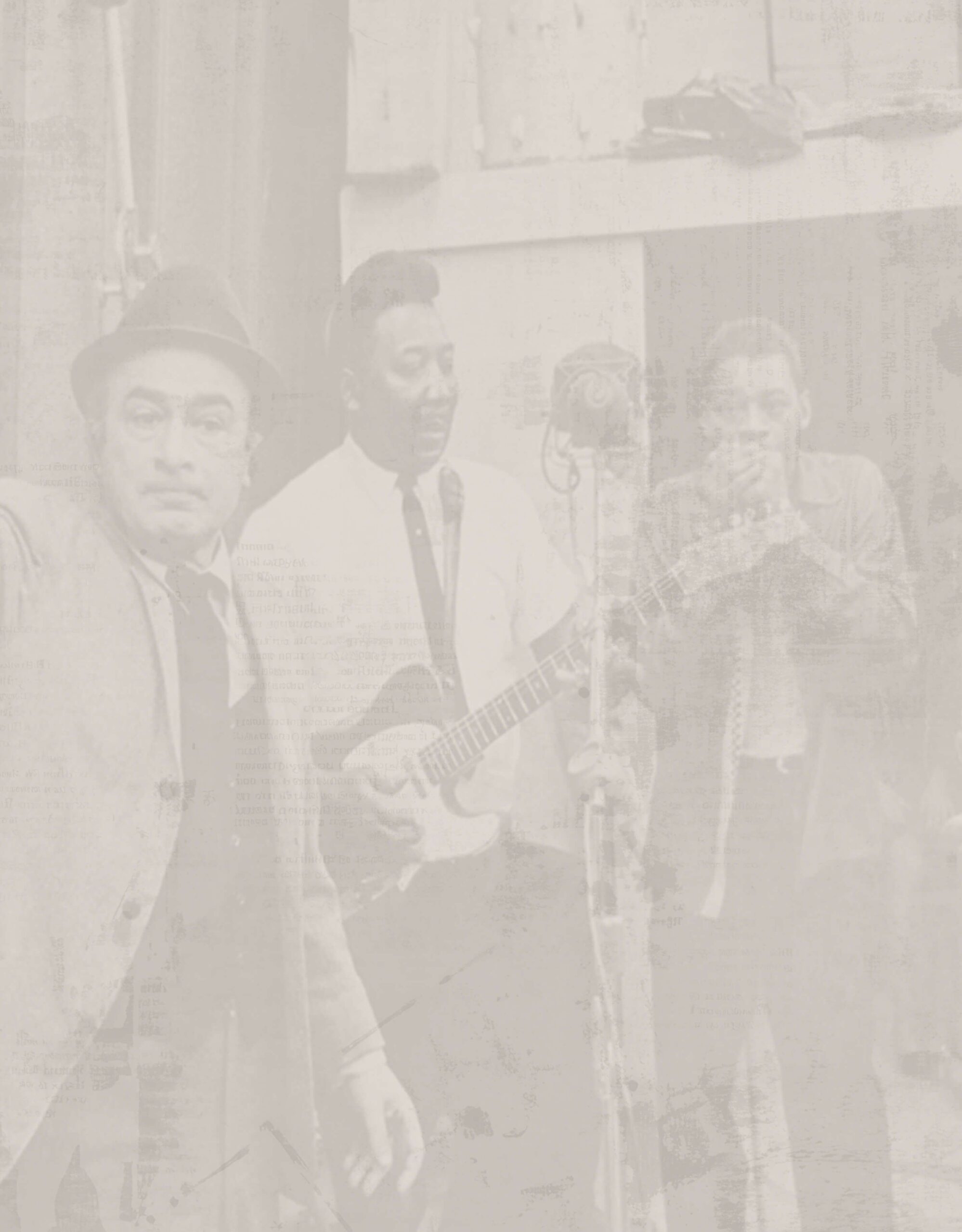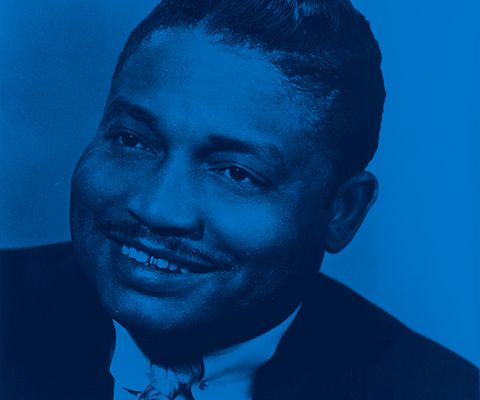Lowell Fulson
Lowell Fulson
“He always managed to stay contemporary without pandering…he was very direct in his singing, writing and playing.” -Billy Vera
While Lowell Fulson’s journey to the Chess Records family was more circuitous than most (and his tenure briefer, too), his playing and songcraft offered a crucial foundation for an electric blues style more directly influenced by jump blues and jazz, popularized as “West Coast blues.” His work for the Checker label included his composition “Reconsider Baby,” one of the genre’s more enduring standards.
Fulson was born on a Choctaw reservation in Oklahoma in 1921. Like many, he was raised in the musical traditions of the church and would start learning guitar later on, after he turned 12. As a young adult, he took a brief stint as a guitarist for Southern blues singer Alger “Texas” Alexander but found a new home in Oakland, California, where he’d move after being stationed there in the Navy during World War II.
His big break came around 1948 with the release of his original composition “Three O’Clock Blues,” a Top 10 R&B hit for him and a chart-topping R&B smash for a rising guitarist named B.B. King, who’d cover it in 1951. Fulson was an in-demand live performer, fronting a band that at one point included both saxophonist Stanley Turrentine (later a jazz legend) and a wildly talented, blind keyboardist named Ray Charles. Chess subsidiary Checker offered Fulson a contract in 1953. While he only recorded a few dozen sides for the company - none of which were ever assembled into a contemporaneous LP - his first was a stunner. “Reconsider Baby,” a grinding number propelled by a 12-bar piano figure, driving horns (typically unheard on Chicago blues records) and Fulson’s simple but intense guitar attack, became another Top 10 R&B record and a blues standard on its own, covered by Elvis Presley, T-Bone Walker, Little Milton and Ike & Tina Turner.
After departing Checker in 1963, Fulson (renamed “Fulsom” for contractual reasons) enjoyed one last major R&B chart hit with his original “Tramp,” a Top 5 for both him and as a duet between Otis Redding and Carla Thomas. But he didn’t stop recording or performing until health issues led to his retirement in 1997, two years before he passed away at the age of 77. By then, he’d enjoyed an induction into the Blues Hall of Fame and a body of work blues enthusiasts would be reconsidering throughout the years.
While Lowell Fulson’s journey to the Chess Records family was more circuitous than most (and his tenure briefer, too), his playing and songcraft offered a crucial foundation for an electric blues style more directly influenced by jump blues and jazz, popularized as “West Coast blues.” His work for the Checker label included his composition “Reconsider Baby,” one of the genre’s more enduring standards.
Fulson was born on a Choctaw reservation in Oklahoma in 1921. Like many, he was raised in the musical traditions of the church and would start learning guitar later on, after he turned 12. As a young adult, he took a brief stint as a guitarist for Southern blues singer Alger “Texas” Alexander but found a new home in Oakland, California, where he’d move after being stationed there in the Navy during World War II.
His big break came around 1948 with the release of his original composition “Three O’Clock Blues,” a Top 10 R&B hit for him and a chart-topping R&B smash for a rising guitarist named B.B. King, who’d cover it in 1951. Fulson was an in-demand live performer, fronting a band that at one point included both saxophonist Stanley Turrentine (later a jazz legend) and a wildly talented, blind keyboardist named Ray Charles. Chess subsidiary Checker offered Fulson a contract in 1953. While he only recorded a few dozen sides for the company - none of which were ever assembled into a contemporaneous LP - his first was a stunner. “Reconsider Baby,” a grinding number propelled by a 12-bar piano figure, driving horns (typically unheard on Chicago blues records) and Fulson’s simple but intense guitar attack, became another Top 10 R&B record and a blues standard on its own, covered by Elvis Presley, T-Bone Walker, Little Milton and Ike & Tina Turner.
After departing Checker in 1963, Fulson (renamed “Fulsom” for contractual reasons) enjoyed one last major R&B chart hit with his original “Tramp,” a Top 5 for both him and as a duet between Otis Redding and Carla Thomas. But he didn’t stop recording or performing until health issues led to his retirement in 1997, two years before he passed away at the age of 77. By then, he’d enjoyed an induction into the Blues Hall of Fame and a body of work blues enthusiasts would be reconsidering throughout the years.


